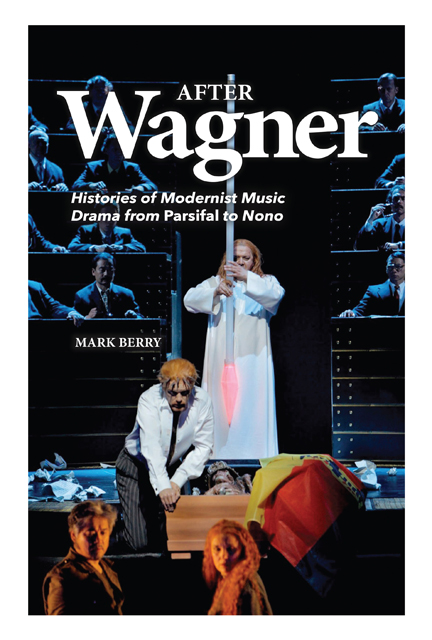Book contents
- Frontmatter
- Contents
- List of Music Examples
- Acknowledgements
- Dedication
- Introduction: ‘After Wagner’
- Part I In the Shadow of German Idealism: From Parsifal to Capriccio
- Part II Composition after the Second World War: From Germany to Italy, and Back Again?
- Part III Performance and the Fruitful Instability of the Work: From Parsifal to Nono
- Bibliography
- Index
Introduction: ‘After Wagner’
Published online by Cambridge University Press: 24 February 2023
- Frontmatter
- Contents
- List of Music Examples
- Acknowledgements
- Dedication
- Introduction: ‘After Wagner’
- Part I In the Shadow of German Idealism: From Parsifal to Capriccio
- Part II Composition after the Second World War: From Germany to Italy, and Back Again?
- Part III Performance and the Fruitful Instability of the Work: From Parsifal to Nono
- Bibliography
- Index
Summary
‘After Wagner’: a good many objections may doubtless be raised to this title, not least that the first chapter is devoted to Parsifal. That, however, is partly my point. In his final stage work, intended exclusively for the very particular stage of Bayreuth, Richard Wagner was not only writing a ‘late work’, not only writing the drama he had always intended to be his last, but was, to an even great extent than in his earlier music dramas, dealing with issues he had raised in previous works, or which, intention notwithstanding, those works had raised. So, as will become immediately apparent from that chapter itself, ‘after Wagner’ may be understood partly to denote ‘after Wagner’s Ring’, or ‘after Wagner’s Ring, Tristan, and Meistersinger’, although from the second chapter onwards, the original phrase will work in the chronological sense as well as any other. That holds at least until the concluding chapter, which looks back to Gluck and Mozart, as well as forward to Berg and Nono, albeit all the while from Wagnerian and post-Wagnerian standpoints.
‘The chronological sense as well as any other’? What other senses, then?
The English ‘after’ is blessed by a host of other meanings, some of greater relevance than others here: to a certain extent consonant with the German nach and the French après and d’après, but arguably going beyond them too. Not for nothing did Herder, to whom Wagner owed a great deal, insist upon the importance of language in forming thought, and not for nothing has that been such a preoccupation amongst philosophers and latterly historians ever since. There is certainly a sense here of enquiring after Wagner, or more to the point after his musico-dramatic principles and their after-life. ‘As a result of ‘ is another meaning of relevance to each of these chapters, in various ways and to a varying extent. Arguably the most important complementary meanings, however, are ‘according to’ and ‘in the manner of ‘. For Wagner’s strenuous conception of music drama as something beyond mere ‘opera’ haunts the following pages. More importantly, it haunts the theory and practice of those composers and, in many respects, performers to be discussed.
- Type
- Chapter
- Information
- After WagnerHistories of Modernist Music Drama from Parsifal to Nono, pp. 1 - 20Publisher: Boydell & BrewerPrint publication year: 2014



